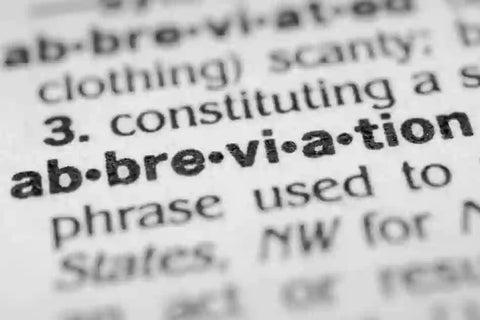Communicating with Journal Editors via Email
Any scholar who uses email to communicate in a professional context sooner or later becomes aware that it can be a tricky medium to negotiate at times. Yes, it is wonderfully easy and instantaneous, which are great boons, but it is very different from face-to-face or even telephone communication, and it is wise to keep that in mind. Your reader cannot see your facial expressions, detect the tumult around you that may prevent clear or detailed communication or in many cases accurately gauge the tone of your voice. Extreme care, thoughtful sensitivity and an unfailingly professional approach are therefore necessary whenever you are composing email messages that may be important to your research and career.
Designing an email response to a journal editor who has assessed the paper you submitted for publication and indicated in his or her feedback the need for revisions before your work can be published presents one of the most challenging writing situations for any academic or scientific author. I do not use the word ‘designing’ here lightly. The email message you send should never be quickly thrown together and blasted off to the editor, unless of course you have decided that you no longer have any desire to be published in the journal and feel confident that you will never want to be published in that journal. Remember that one poorly considered email message can burn potentially useful bridges very quickly indeed. Given that you had wished to be published in that journal only weeks or months before, it is likely that such negative feelings are part of an emotional response to what may seem negative feedback, so take a deep breath and rethink the matter. Even if you do decide that you will not be able to make the changes requested by the editor, a courteous and professional response is in order.
Whether you are planning to revise your paper for resubmission or not, do not start your message with complaints along the lines of ‘I was not expecting such a response’ or ‘I simply do not have time to deal with these revisions.’ Of course you were not expecting a request for changes; such an expectation would imply that you had not bothered to make your paper as good as you possibly could before you submitted it. Of course you have very little time to tend to work you did not anticipate; scholars are busy people, but then so are proofreaders, and the words you write to an editor take time to read, so you want each sentence you send to have the best possible effect. Expressions of gratitude are therefore the right place to begin, and rightly so because you should be grateful if an acquisitions editor has taken the time to give you detailed commentary in an effort to help you improve your work and ultimately achieve publication in his or her journal. If you find it difficult to foster such feelings, think of all those authors who receive nothing more than a formulaic rejection that holds out no hope of publication. You have an opportunity they do not, so take advantage of it and begin your email response with ‘Thank you so much for your message and your helpful comments on my paper.’
What you write after that depends on how you have decided to deal with the requested revisions. It is essential to think through your plans as thoroughly as possible before you respond because such reflection will help you design and compose a reply that communicates your intentions as clearly and precisely as possible, including explanations of any changes you cannot make and valid scholarly reasons why. Keep your professional cap in place at all times, do your best to consider the needs of the editor and journal as well as the integrity of your research and the practicalities of revision. Finally, make sure that your prose is as carefully constructed as the content it aims to communicate. This is no time to suggest through poor writing that you are not capable of producing a perfect text, so seek the assistance of an experienced colleague or mentor or engage the services of a professional proofreader to help you polish your message to a scholarly shine.
Why Our Editing and Proofreading Services?
At Proof-Reading-Service.com we offer the highest quality journal article editing, dissertation proofreading and online proofreading services via our large and extremely dedicated team of academic and scientific professionals. All of our proofreaders are native speakers of English who have earned their own postgraduate degrees, and their areas of specialisation cover such a wide range of disciplines that we are able to help our international clientele with research editing to improve and perfect all kinds of academic manuscripts for successful publication. Many of the carefully trained members of our manuscript editing and proofreading team work predominantly on articles intended for publication in scholarly journals, applying painstaking journal editing standards to ensure that the references and formatting used in each paper are in conformity with the journal’s instructions for authors and to correct any grammar, spelling, punctuation or simple typing errors. In this way, we enable our clients to report their research in the clear and accurate ways required to impress acquisitions proofreaders and achieve publication.
Our scientific proofreading services for the authors of a wide variety of scientific journal papers are especially popular, but we also offer manuscript proofreading services and have the experience and expertise to proofread and edit manuscripts in all scholarly disciplines, as well as beyond them. We have team members who specialise in medical proofreading services, and some of our experts dedicate their time exclusively to dissertation proofreading and manuscript proofreading, offering academics the opportunity to improve their use of formatting and language through the most exacting PhD thesis editing and journal article proofreading practices. Whether you are preparing a conference paper for presentation, polishing a progress report to share with colleagues, or facing the daunting task of editing and perfecting any kind of scholarly document for publication, a qualified member of our professional team can provide invaluable assistance and give you greater confidence in your written work.
If you are in the process of preparing an article for an academic or scientific journal, or planning one for the near future, you may well be interested in a new book, Guide to Journal Publication, which is available on our Tips and Advice on Publishing Research in Journals website.








